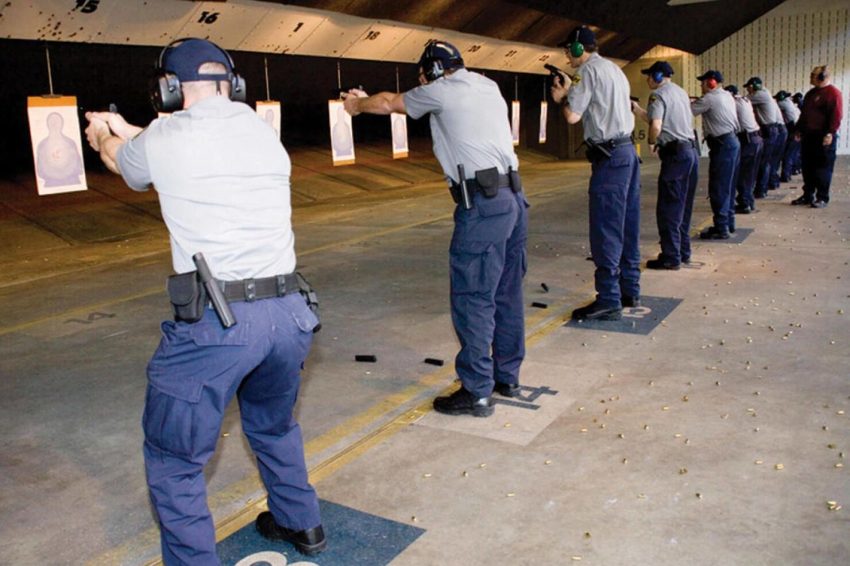Unlocking the doors to a new era of police training, online law enforcement courses have emerged as an innovative solution in a rapidly evolving world. Gone are the days of dusty textbooks and stale lecture halls; today, aspiring officers can don their virtual badges and embark on a transformative journey through the digital realm. As technology continues to revolutionize every aspect of our lives, it comes as no surprise that even law enforcement is embracing the power of virtual learning. In this blog post, we will delve into the rise of online law enforcement courses and how they are reshaping police training as we know it. So grab your cyber magnifying glass and join us on this thrilling investigation into the future of policing!
The History of Police Training
Long before the digital age, police training took on a more traditional form. In the early days, aspiring officers were subjected to rigorous physical training and classroom instruction that focused primarily on legal statutes and procedures. The emphasis was placed on discipline, obedience, and physical prowess.
As time passed, police training began to adapt to societal changes. The introduction of community policing in the 1970s shifted the focus towards building relationships with communities and improving communication skills. Training programs incorporated scenarios and role-playing exercises to help officers navigate real-life situations they might encounter while on duty.
However, even as police training evolved over the years, there were limitations to its effectiveness. Traditional methods often struggled to adequately address complex issues such as cultural sensitivity or de-escalation techniques. Additionally, logistical challenges made it difficult for officers from different regions or countries to access specialized training programs.
The Shift to Online Learning
In recent years, there has been a significant shift in the way law enforcement agencies are training their officers. Gone are the days of brick-and-mortar classrooms and outdated training manuals. With advancements in technology, online learning has emerged as a game-changer in police training.
One of the main advantages of online law enforcement courses is flexibility. Officers can now access training materials anytime, anywhere. They no longer have to attend physical classes or rely solely on scheduled sessions. This flexibility allows them to balance their work responsibilities with their ongoing professional development.
Furthermore, online learning offers interactive and immersive experiences that enhance engagement and retention of important information. Through multimedia presentations, virtual simulations, and real-life scenarios, officers can develop critical thinking skills and practice decision-making in a safe yet realistic environment.
The Benefits of Online Police Training
Advancements in technology have brought about significant changes in various industries, and law enforcement is no exception. The rise of online police training courses has revolutionized the way officers are trained and educated. This shift to virtual learning comes with several notable benefits.
First and foremost, online police training offers flexibility and convenience. Unlike traditional classroom-based training programs that require officers to physically attend classes at specific times, online courses allow participants to access materials at their own pace and from anywhere with an internet connection. This flexibility enables officers to balance their professional responsibilities while continuing their education.
Moreover, online police training often utilizes interactive multimedia content such as videos, simulations, and quizzes. These engaging resources help enhance retention rates among participants compared to traditional lecture-style sessions. Officers can learn through visual demonstrations or practical scenarios that simulate real-life situations they may encounter on the job.
The Drawbacks of Online Police Training
While online law enforcement courses have certainly revolutionized police training, it is important to acknowledge the potential drawbacks that come with this shift towards virtual learning.
One major drawback is the lack of hands-on experience. Traditional police training often involves practical exercises and simulations that allow officers to apply their knowledge in real-life scenarios. In an online setting, it can be challenging to replicate these experiences effectively. While virtual reality technology may help bridge this gap to some extent, it still cannot fully substitute for actual on-the-ground training.
Another concern is the limited interaction between instructors and students. In a physical classroom setting, students have direct access to instructors who can provide immediate feedback and address any questions or concerns. However, in an online course, communication primarily occurs through forums or email, which may result in delayed responses or misunderstandings.
The Future of Online Police Training
As technology continues to advance at a rapid pace, the future of online police training looks promising. With the increasing demand for flexible and accessible learning options, virtual courses are likely to become even more prevalent in law enforcement education.
One area that holds great potential is the integration of virtual reality (VR) into police training programs. VR can provide realistic scenarios that allow officers to practice their decision-making skills in a safe and controlled environment. This immersive experience can better prepare them for real-life situations they may encounter on the job.
Furthermore, artificial intelligence (AI) could play a significant role in enhancing online police training programs. AI-powered simulations can analyze an officer’s responses and provide valuable feedback and personalized recommendations for improvement. This individualized approach can help address specific areas where an officer may need additional training or support.
Conclusion
As technology continues to advance and reshape various industries, it comes as no surprise that online learning has also made its mark on police training. The rise of online law enforcement courses has revolutionized how officers are educated and equipped for their demanding roles.
Online police training offers numerous advantages. It allows officers to access course materials at their own convenience, eliminating geographical constraints and time limitations. Virtual simulations provide a safe environment for practical exercises, allowing recruits to gain valuable experience without real-world risks. Additionally, online courses can be updated easily with emerging laws or procedures, ensuring that officers receive the most up-to-date information.


